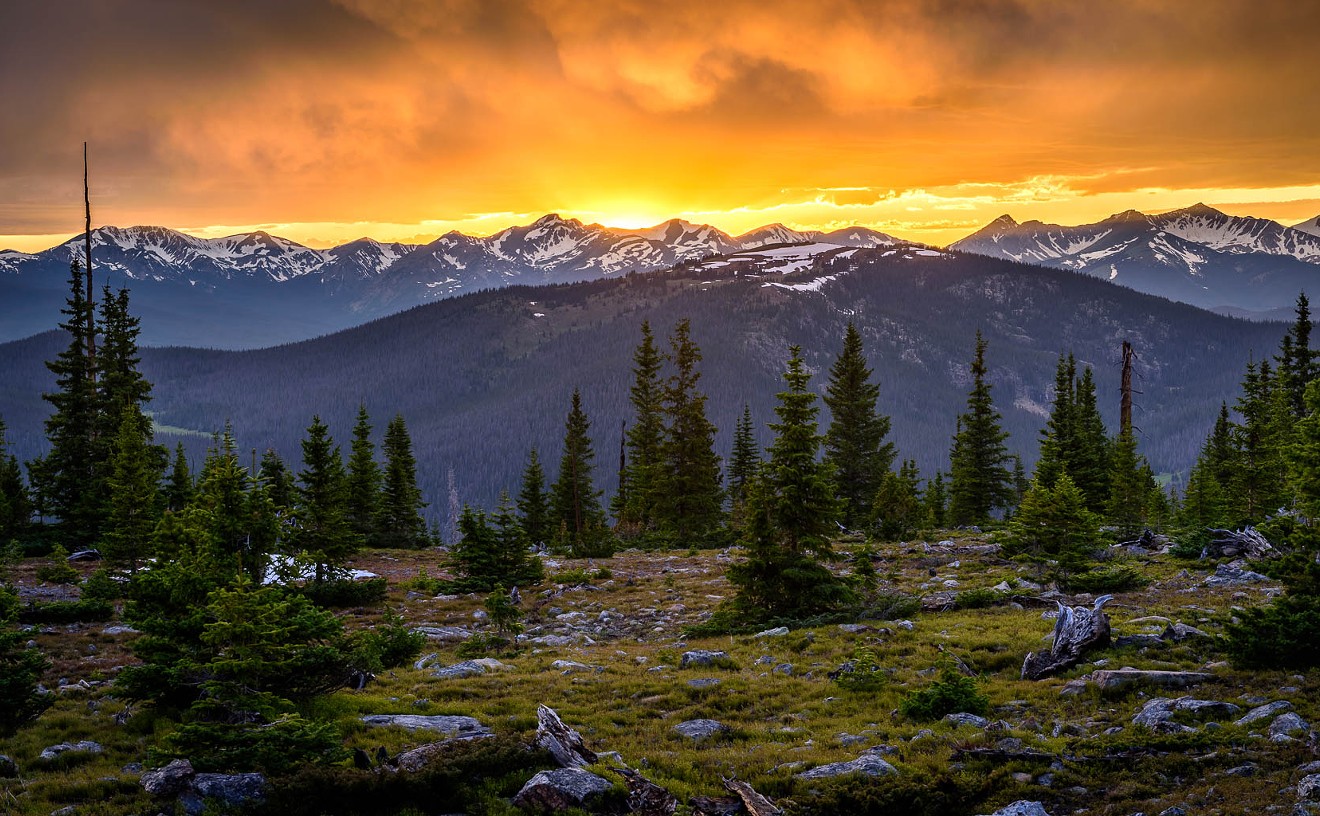Using costumes, puppetry in the traditions of Asian theater, and live lyrical interpretations of stories from Aesop to American Indian culture to talk about climate change, Armitage's one-hour show will give the audience plenty to think about. In advance of tonight's performance, she spoke with Westword about how Fables came about, and why it is important to make art that is accessible to all ages.
See also: Now Showing: Garrett Ammon and Laura Ann Samuelson on dance and the arts
Westword: What will Fables on Global Warming look and feel like?
Karole Armitage: This is kind of an unusual piece for me -- it has dancers and musicians on stage. What I did was to take ancient fables from around the globe -- like Aesop's 2,000-year-old fables -- and turned them into dance and music. The reason I did that is fables were written for the ruling class; they are really about how to use power wisely. They are all told by animals, they all take place in nature and they all naturally have metaphors that relate to climate change.
It just turned out to be a perfect way to implicitly talk about climate change. It's not science, it's not political. It is simply saying, we have choices -- do we want to dominate nature, or do we see ourselves as a part of nature? It really turned into a kind of philosophical piece. At the same time, it is witty, charming and fun. These are classic stories that have lasted for 2,000 years and they are wonderfully entertaining.
The performance has a very broad appeal -- we're doing many performances of this piece for children, because we use lots of props and puppets inspired by Asian theatrical traditions. Each of these fables look very interesting -- we have a story of a stag that has giant silver antlers on his head when he's dancing. So they all have a lot of visual delight. The dance is (in part) performance art -- the dancers manipulate a giant bull puppet. The bull is like ten feet by twenty feet -- it is a huge bull. So (it goes) from this performance art kind of thing to this really radical virtuoso, twenty-first century ballet on point. It is explosively athletic.
There are new dance ideas as well as this kind of very straightforward storytelling, so that experienced audiences have something to see and people who have never been to dance can understand it. It is meant to appeal to all kinds of audiences.
You utilize musicians on stage for this piece -- can you talk about their role in Fables?
The musicians are on stage playing live music, and they play a troubadour -ike band of musicians who all play a character of an extinct North American animal. So, for instance, the flute player is the Carolina parakeet, the trombone player is the passenger pigeon. The composer, Corey Dargel, plays the big thicket hog-nosed skunk, and he sings and kind of narrates the stories to help everyone understand.
The musicians are on stage kind of mixing with the dancers, like spirit guides. The dancers take on all these different characters -- from bears to doves to cicadas: many, many different kinds of animals. The fables really do come from around the globe, lots from Aesop but also from China and Native American fables. It's entertaining and has a little food for thought. Why did you choose climate change as a topic you wanted to bring to the stage now?
I have wanted to do something about climate change for many years -- it was just that every scenario I could come up with was so doom and gloom. I didn't want to make something political or that was like a lecture. So, it just took me a long time to come up with the right idea. These fables just naturally are all about the environment -- everything deals with animals talking about the environment. They are both fun and profound.
There's a MacArthur-winning scientist named Wes Jackson and he said something interesting -- he said that during the time of the Civil War, the law allowed people to own slaves, but we knew this was ethically and morally wrong. He said today, we are allowed to drill and frack; legally, this is all permitted, even though we morally and ethically know that we shouldn't be doing this to the earth. It's a real parallel. We need to get the law and morality aligned.
I'm just doing it because it is important, and I wanted to do it in a way that really gives hope. (The performance) really does say, instead of trying to dominate nature, we need to see ourselves as part of nature. If we do that, we can make a change.
And the way you're presenting it -- in a positive light, instead of the usual gloomy tone of this topic -- makes the topic of climate change accessible.
The fact that it can appeal to children -- it really is an entertainment. But at the same time, it will give people a chance to think about it in a very different way that it has ever been presented before. When we talk about global warming, often I feel like people feel overwhelmed.
And for people who are ballet lovers and modern dance lovers, they will see pure dance. For people who are music lovers, they'll have an interesting, new voice in Corey Dargel. People who love classical music can love it; people who love pop music will be able to appreciate it because he really does find a way to bring both elements together in a totally natural way. I just want to offer something to everyone.
Armitage Gone! Dance performs Fables on Global Warming tonight at 7:30 p.m. at Macky Auditorium on the CU-Boulder campus. For tickets and more information, call 303-492-8008 or go to the school's website.
Follow @WestwordCulture











